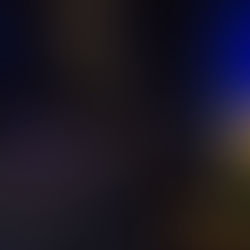"With My Music, I Want to Unite Worlds"
The Iranian-Dutch musician Farid Sheek (29) comes from a family of Sufi musicians. "It wasn’t until I moved to the Netherlands that I truly got to know Sufi culture."
In the Sufi House in Rotterdam South, the mysticism is almost palpable. Persian artifacts adorn the walls, and next to the window stands a bookcase filled with works on Islam and other world religions, such as Christianity and Judaism. Farid Sheek points to a display case containing an elegant Persian robe. "This belonged to my grandfather Mahdi Sheikhbahai, also known as Safi Ali Shah the Second. He devoted his life to spreading the Sufi tradition."
Sheek was born in Iran and emigrated to the Netherlands at the age of 17, where he trained as a composer. From an early age, he learned to play Iranian musical instruments from his father.
Sufism—also known as tasawwuf, which means "being a Sufi"—is a spiritual tradition within Islam. Today, it is primarily practiced by Muslims in Iran, Afghanistan, Turkey, Pakistan, and India. Sufi scholars, including the famous Persian poet Jalal ad-Din Rumi, are renowned for their mystical teachings, poetry, music, and dance.

The Persian Daf
"I was born in Isfahan. My father was a musician, my mother had a beautiful voice, and my grandfather was a Sufi master. When I was seven, my grandfather placed a musical instrument in my hands and said, ‘You have a mission to inspire people.’ That’s when I began playing the daf, a Persian musical instrument. Later, I also learned to play the piano."
He takes out his daf—a circular percussion instrument with a decorated wooden frame covered in leather. The room resonates with the sounds of the daf, which resembles a drum but produces a deeper tone.
"I knew I needed music to transform pain and sorrow into joy."
"I knew I needed music to transform pain and sorrow into joy."
The daf is an ancient Persian and Kurdish instrument, predating the arrival of Islam. "For Sufi music, the daf is theinstrument," says Sheek. "It is sacred because it was traditionally played during religious Sufi ceremonies in Iran. Today, daf music is also used for entertainment, such as at weddings and celebrations. For me, the instrument remains sacred. Its sounds are so energizing that you can’t sit still. That’s what makes it special to me."
Despite coming from a musical family, Sheek didn’t initially consider a career in music. "I didn’t plan on becoming a musician because I knew it wouldn’t be easy. Being a musician in Iran is tough; it’s hard to make a living through music. But I always knew I needed music to transform pain and sorrow into joy. Music has always been my outlet. It played a crucial role in my childhood, helping me find the right path and stay true to myself."

"Maybe it’s because of my genes or my daily practice, but I reached a high level of skill. People wanted to hear me play. Even back then, family, friends, and classmates would always ask me to perform."
Telling Stories
After preparing a cup of coffee, he settles back on the Persian carpet. "When I arrived in the Netherlands at 17, I didn’t know the language. But with the language of music, I could communicate a little with people. I showed them where I came from and what I had learned there. Gradually, music became my work. Music can tell stories bigger than words—that’s my belief."
In the Netherlands, where he built a new life, Sheek discovered the essence of Sufism. "This happened because, at the Sufi House founded by my grandfather, who had also emigrated, I encountered musicians from various cultures who were also engaged with Sufi music and spirituality."
What makes a place spiritual? "It’s not the place itself, but the people who bring spirituality," says Sheek. "When a spiritual person enters a café, they bring spirituality. When they go to a mosque, the mosque becomes a spiritual place."
Now that Sheek has developed further as a composer, he strives to blend instruments and melodies from East and West. "Music adds emotion to stories," he says, "allowing people to understand each other better. This is how I try to bring cultures together."
"Sufism Is a Path of Life" Last year, he performed at the Muziekgebouw in Eindhoven with Russian cellist Maya Fridman. In early November, he performed with Fridman again at the Concertgebouw in Amsterdam. The proceeds of the performance went to the victims of the war in Israel and Gaza.
Pieces of a Puzzle
Sheek draws his inspiration to bring people closer together from Sufism. He believes there are countless interpretations and expressions of Sufism and Islam, just as there are in other religions. "I am convinced that religions are pieces of a map. Together, they form a whole. No prophet ever rejected the teachings of another prophet. They simply added elements they believed suited the time, people, and culture they lived in. The followers of prophets often fought over the essence, the truth of faith, but those conflicts have nothing to do with the message of religion."
According to Sheek, religion is about harmony. "Music is the sound of that harmony. I see Islam as a sea of beauty, peace, tranquility, togetherness, and brotherhood."
Sufism, says Sheek, is a path of life—one that involves encounters with other traditions and beliefs. "You can combine the Sufi path with other religions. It’s not necessarily forbidden."
As he plays his daf in concert halls across the country, Sheek reminds himself to remain humble. "I want to stay a student and learn from others. With my music, I want to promote peace, harmony, and friendship in the world. Don’t look at who is making the music; listen to the sounds and melodies being played. That’s the message I want to share."



















Bình luận